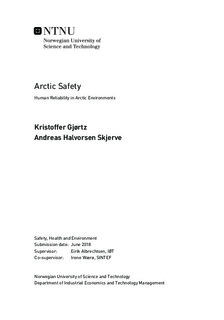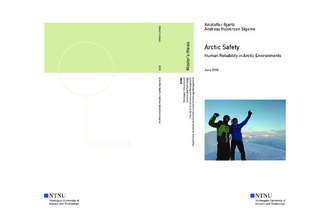| dc.description.abstract | This thesis presents the research on human performance in the Arctic by K. Gjørtz and A. Skjerve in connection with their master s degree during the Spring of 2018. The result is based on face-to-face interviews conducted with various people working and living on Svalbard and observations during the period from 27th of February to 13th of March 2018.
The findings from the research shows that the human reliability analysis available today lacks suitability for activity on land in the Arctic as they stand. Nevertheless, some of the content of the analyses is adaptable for an arctic context. Some of the definition and multipliers of the performance shaping factors (PSF) in this thesis is based on the PSFs from THERP, HEART, NARA, SPAR-H and Petro-HRA.
The main objective in this thesis was to find PSFs that has a significant impact on human performance in the Arctic. From the results of the interviews and the thesis participants own experiences the following PSFs were identified; Time, Experience and Training, Perception of Risk, Procedures, Equipment, Teamwork, Environmental Stressors, Fitness, Task Complexity and Attitude to Safety, Work and Management Support. | |

